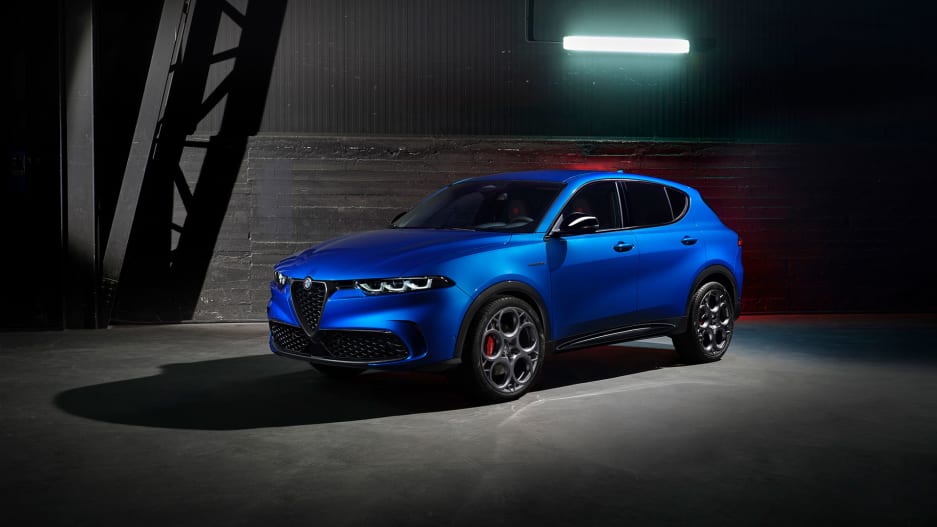- | 6:49 pm
This sleek SUV comes with an NFT. Could it be the future of car ownership?
The company’s newest vehicle comes linked to its own blockchain token, which can record details of the car’s life cycle.

The web of NFT technology continues to stretch far beyond art, and the world of auto vehicles is the latest to be ensnared. Italian carmaker Alfa Romeo today unveiled its new Tonale SUV—and it comes equipped with its own blockchain token, in what the company claims is a revolutionary first for the industry.
You might think So what? In 2022, “blockchain” is the trendiest marketing buzzword of the moment. Media outlets are already calling this year’s upcoming Super Bowl the “crypto bowl”—thanks to a parade of multi-million-dollar advertisements from Coinbase Global, Binance, FTX, and Crypto.com. In this fast-paced landscape, yet another big brand churning out a special edition virtual trading card is worth no more than a shrug (who really needed rights to a 50-years-of-Crockpot gif?).
But still, some applications of crypto have more potential to change the game than others. And Alfa Romeo’s NFT innovation is different in that it makes functional use of the tech. According to a release from the company, the Tonale NFT’s blockchain ledger will record details about the car throughout its life cycle, including proof of proper maintenance. It “gathers information from the car’s electronic system and records all data on the blockchain,” Francesco Calcara, Alfa’s head of global marketing and communication, said in a briefing with reporters. That will “sustain the residual values of our models as we are the first in the market to adopt this next-generation technology.”
This way, owners of a Tonale can have digital certificates of regular car check-ups added to the blockchain, which could boost the car’s eventual resale value. But it could also help future buyers. While dealerships often have files on a vehicle’s past services, used-car shoppers are not always privy for an array of “reasons”—if the car has passed through many hands, for instance, or lost its data in an auction. A blockchain ledger could hold crucial information about whether the car has been in a crash, or had its mileage reset, or has had recurring problems with its brakes or suspension—all of it publicly verifiable and, of course, immutable. In this sense, car NFTs could one day become as essential as the Kelley Blue Book.
But that’s not to say Alfa Romeo is breaking ground there yet: It revealed its new tech Tuesday, and has yet to put any of it into practice. And blockchain certificates can be added only by Alfa Romeo dealers, meaning only car services within the network are recorded. However, one could argue that its concept, in theory, stays true to the blockchain’s original purpose by giving more power to the people it serves. (Other automakers that have dipped toes into NFT waters include mostly luxury collectibles from the likes of Mercedes-Benz, Rolls-Royce, and Lamborghini—whose tokens came with physical carbon fibers from the International Space Station.)
Alfa Romeo was founded in 1910 and is owned by Stellantis group, which also includes Dodge, Chrysler, and Fiat. Its performance has been lackluster in recent years, selling less than 19,000 cars per year since 2019. (In comparison, its rival BMW sold 93,000 cars in just the fourth quarter of 2021 in the United States.) Now, it appears to be making a big futuristic push, including a goal to shelve combustion engines and become all-electric by 2027. “Digitalization is a key enabler of our metamorphosis,” Calcara said in the news briefing.































